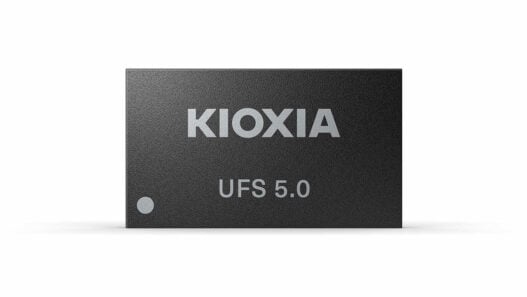The UDMA Proven System Block (PSB) adds to QuickLogic’s suite of hard disk drive (HDD) interface blocks for the company’s CSSP platforms, including PolarPro and ArcticLink. The UDMA block quadruples the speed of parallel-ATA data transfers from 16 Mbytes/sec to 66 Mbytes/sec. It works in ATA/ATAPI-5 modes as well as multi-word DMA and PIO modes, and includes driver software for the Linux operating system. Development of a Windows CE based software driver is also planned for release.
The performance enhancement that the new UDMA PSB gives our ATA interface will support the design of mobile devices that stream movies from a hard disk drive, said QuickLogic’s Principal Architect and Senior Director of Systems Engineering, Judd Heape.
Designers can also translate this performance increase into power savings by putting the HDD into a low-power sleep mode in between data transfers. The higher transfer speed means that the HDD spends more time asleep.
QuickLogic’s development of the UDMA PSB arose as the result of working with a customer on creation of a CSSP for a wireless HDD product. The customer wanted to make sure the actual data transfer rate between the HDD and the QuickLogic supplied USB High-speed On-the-Go (OTG) interface port was as fast as possible, at least 200 Mbits/second, said Heape.
QuickLogic worked very closely with the customer and jointly defined the system architecture to create this block, which exceeded their performance expectations. This solution highlights QuickLogic’s complete approach to fulfilling customer needs and how QuickLogic can successfully work directly with customers to create and combine PSBs to address their most challenging requirements.
The UDMA PSB is available immediately as part of QuickLogic’s CSSP support package.
CSSP semiconductor devices combat the challenges faced by today’s mobile system architects and engineers by combining both the high levels of integration and proven functionality of application specific standard products (ASSPs), with the customer specific functionality of application specific integrated circuits (ASICs). QuickLogic calls this unique combination of application- and customer-specific functionality a Customer Specific Standard Product (CSSP). What sets a CSSP apart from ASSP and ASIC approaches is that QuickLogic is able to deliver solutions that meet the integration and customisation requirements from pre-fabricated silicon, often delivering proven solutions within days rather than months, or even years. The dramatic reduction in time-to-delivery of these custom solutions enables customers to meet severe time-to-market pressures.
QuickLogic offers two types of CSSP platform: ArcticLink and PolarPro. ArcticLink combines hardwired building blocks with an embedded, ultra-low power array of Customisable Building Blocks (CBBs) for additional connectivity and custom functions. PolarPro programmable platforms provide up to 240 CBBs, combined with embedded SRAM, advanced clock management, and a unique Very Low Power
(VLP) mode that will maintain I/O status and internal register values while asleep yet drawing as little as 2.2 microamps. CBBs are a unit of measurement that represents the on-chip logic that can be used to implement a variety of proven system blocks in QuickLogic’s library, such as SDIO, PCI, IDE, CE-ATA and NAND Flash controllers.







